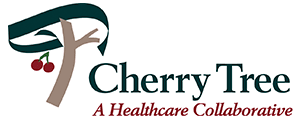 Rage applying is when young employees in professional fields get fed up with the workload, boss, compensation, or all of the above and apply to as many other companies as they can while soaking in their anger. The act of applying to other jobs when one’s morale is low is nothing new. But the term “rage applying” is the latest buzzword to surface in Human Resources as Gen Z and some Millennials grapple with a wide range of disappointments and setbacks.
Rage applying is when young employees in professional fields get fed up with the workload, boss, compensation, or all of the above and apply to as many other companies as they can while soaking in their anger. The act of applying to other jobs when one’s morale is low is nothing new. But the term “rage applying” is the latest buzzword to surface in Human Resources as Gen Z and some Millennials grapple with a wide range of disappointments and setbacks.
Many of them began their careers in a pandemic that had people feeling more isolated and forcing them to work from home. As a result, they have not cultivated the kinds of relationships that get people to stay. They might have lacked the mentorship that can fuel a new worker.
Why Is This Happening?
Most importantly, they are now facing serious financial hardship. Some have loads of student debt. Inflation is high, and it is making the prices of housing, groceries, and other necessities skyrocket. Even if wages rose recently, they are not going as far as they might have before the economic downturn. So, sadness quickly turns to anger when the boss asks them to add one more thing to their already overflowing plate or when other colleagues are quiet quitting and leaving them with all the work.
Watching these TikTok videos reveals that rage applying might be a way to deal with anger, but it can also pay off. CNBC reported that one person who was rage applying earned a $14,000 raise. The woman whose viral video introduced the concept of rage applying said she earned $25,000 more annually.
Warning When Rage Applying
Still, experts warn that rage applying comes with its risks. There is no discrimination or vetting of the organization. Sending out mass applications increases the odds of getting an interview and therefore an offer, but applicants could end up in a similar situation to the one they are trying to escape.
“The high that comes from a potential pay bump at another toxic job is going to wear off pretty quickly,” Career Coach Jenna Greco says to CNBC.
This is an excellent point because leaving the devil you know does not guarantee you will find an angel around the corner. Rage applying raises another issue because it is a demonstration of how differently the generations act in the workplace. For instance, Baby Boomers, who are retiring, tend to be more loyal to employers. They also expected to meet with managers in person, and they prefer to be in the office. In addition, they communicate more about their frustrations.
Gen Z and Millennials are used to texting. They are working remotely often. Many of them live behind their screens. As a result, communication is not the way they handle these problems. The issue is that communication is necessary for success. Without expressing these frustrations, the managers will never know what they could be improving or how the workplace could be transformed. No one will ever know what is in this young person’s head or how she would like to grow in her career. Rage applying is a form of hiding from one’s problems.
What Should HR Do?
Frankly, businesses are going to have to fess up to the fact that their cultures are causing these HR trends like quiet quitting and rage applying and the Great Resignation. They’re going to have to address the problems that are motivating Gen Z and some Millennials to react to their employers in these ways. The moral of the story is that the future of work depends on better communication. And the future is now.
By Francesca DiMeglio
Originally posted on HR Exchange Network

